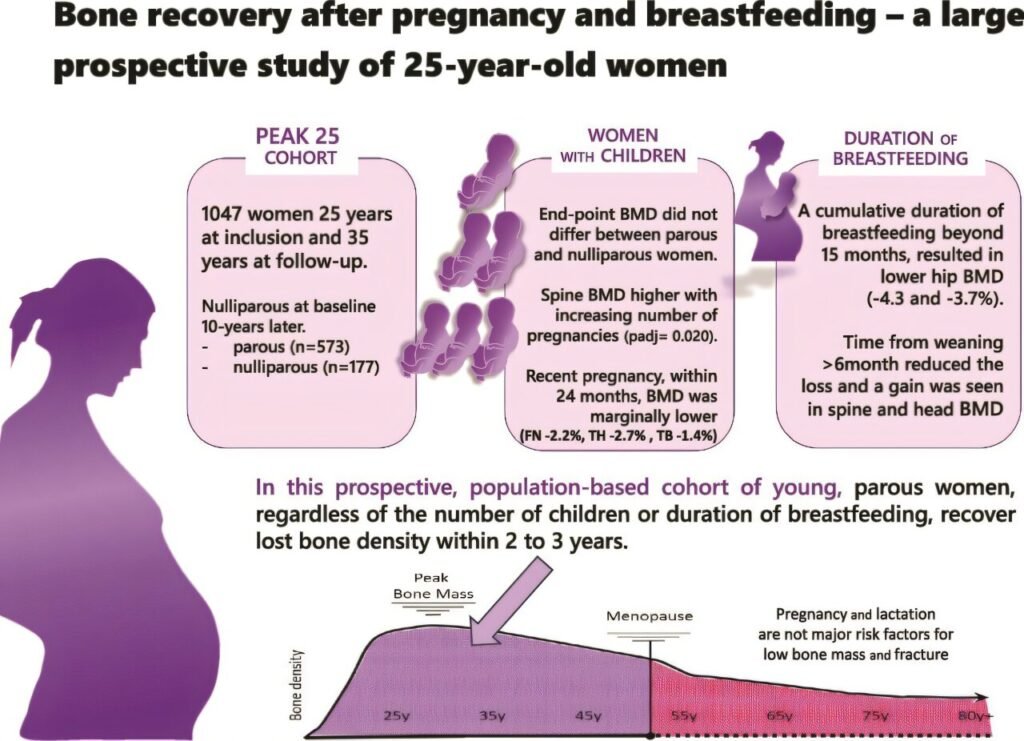A recent study conducted at Lund University in Sweden has shed light on the impact of pregnancy and breastfeeding on women’s bone density. Contrary to popular belief, the research findings suggest that pregnancies do not weaken a woman’s skeleton. However, breastfeeding has been found to significantly reduce bone density. This study, led by researchers Lisa Egund and Kristina Åkesson, followed 750 women over a ten-year period to investigate the effects of the reproductive cycle on bone density.
The study participants, who were 25 years old at the beginning of the study, provided detailed information about their pregnancies, breastfeeding habits, and lifestyle factors such as physical activity, alcohol consumption, smoking, and BMI. Surprisingly, the researchers found that pregnancy did not have a negative impact on bone density, even in women who had multiple pregnancies. However, breastfeeding women showed a 7% reduction in bone density within six months of stopping breastfeeding. Fortunately, bone density recovered over time, and after two years, it was found to be slightly better than before breastfeeding.
The study, which is one of the largest of its kind internationally, focused on measuring bone density in various parts of the skeleton. The most significant reduction was observed in the hips, although the researchers emphasize that this reduction does not pose a risk of fractures. The rapid recovery of bone density after breastfeeding cessation has surprised the researchers, leading them to believe that the skeleton has a remarkable ability to remineralize itself.
The implications of this study go beyond understanding the effects of pregnancy and breastfeeding on bone density. The researchers believe that this knowledge can be used to develop more effective drugs for osteoporosis treatment. Additionally, they hope that these findings will positively influence women’s decisions regarding breastfeeding.
The next phase of the study involves following the same group of women for another ten years, from the ages of 35 to 45, to observe the long-term effects on bone density. The researchers are optimistic that the skeleton’s recovery will continue during this period, highlighting the remarkable ability of the skeleton to regenerate itself.
The study was recently published in the Journal of Bone and Mineral Research, providing valuable insights into the impact of pregnancy and breastfeeding on women’s bone health. For more information, you can access the study published in the journal with DOI: 10.1093/jbmr/zjaf087.
This research was conducted by Lund University, a prestigious institution known for its contributions to scientific and medical advancements. For more updates and information, you can visit Lund University’s official website.


